Emily Howard Jennings Stowe (1831-1903) was a teacher, a doctor, and a suffragette. She was one of the first women in Canada to graduate from medical school, the first female principal of a primary school, and one of the founders of the campaign for women's right to vote.
Born in rural Ontario south of London, Emily Jennings was raised as a Quaker. Her parents sent her to Rhode Island to be educated in a Quaker school for boys and girls when she was young, and she returned to her home to teach for several years. In 1852, when she was 21, Emily decided she wanted to further her own education. She applied to Victoria College and was denied for being a woman, as the college was for men only at the time.
She instead went to school in Toronto, at the Normal School for Upper Canada, founded by Egerton Ryerson. She graduated with honours in 1854 and was then hired to be a principal of a public school in Brantford Ontario, the first woman to take such a job.
In 1856 she got married; she and her husband had three children. In the 1860s her husband contracted tuberculosis, which sparked Emily's interest in medicine. She continued to teach and bring home the only income her family had, but after the birth of her third child her mind was made up. She decided to apply to medical school, but in 1865 was told by the Toronto School of Medicine: "The doors of the University are not open to women and I trust they never will be."
She attended the New York Medical College for Women instead and graduated in 1867. While she was there, Stowe met members of the women's suffrage movement in the United States, including Susan B. Anthony. Stowe came back to Toronto to practice medicine without a license, which she did openly for 13 years, placing advertisements for her services in the newspaper. She gave public lectures on women's health and made a name for herself as a doctor who specialized in treating women with care and respect.
In 1870 she and Jennie Kidd Trout were granted permission by the president of the Toronto School of Medicine to take classes. They both enrolled but Stowe found the classmates and teachers hostile and left shortly afterwards. The two women had to put up with pranks and abuse from the men around them, including body parts being left on their seats in lecture halls.
Trout continued on, but also found the environment difficult. She transferred to the Women's Medical College of Pennsylvania and got her license to practice medicine in 1875.
In 1877 Emily Stowe organized Canada's first suffrage organization, initially called the Toronto Women's Literary Club, which later became the Canadian Women's Suffrage Association. The group advocated for schools to accept women as students, and worked on awareness campaigns about female workers and their rights and conditions. Around this time Emily also stopped being a Quaker and started identifying as a Unitarian.
Stowe had to wait until 1880 to get her medical license, when the College of Physicians and Surgeons of Ontario finally acknowledged her many years of training and practice. As we will see, the first woman to complete her medical education in Canada would not happen for three more years - her own daughter, Ann Augusta, in 1883, was allowed to graduate from Faculty of Medicine at Victoria University in Toronto.
Emily retired from work in 1893 after she broke her hip, at the age of 62. She died ten years later at 72, still working for women's suffrage and president of the Dominion Women's Enfranchisement Association. It would be another 14 years before some Canadian women were granted the right to vote.
From her obituary in the Globe in 1903:
The death of Dr. Emily Stowe brings to recollection the inevitable hardships of the pioneer on any path of human progress. Now that the rights for which she contended are accorded and enjoyed as a matter of course, it is hard to realize the unreasoning prejudice she encountered, the obstacles which were thrown in her way and the opposition she had to face. Women who now choose the medical profession in Canada and find every facility provided for their various courses of study can never know how deeply they are indebted to the pioneer who opened the path they so easily follow. Intellectual courage, clear conviction, steady, unswerving purpose, a composed philosophic mind, were the qualities that won success in a long struggle against the mental inertia and reaction that would deny to women the right to study and practise medicine.
- A History of Women's Suffrage
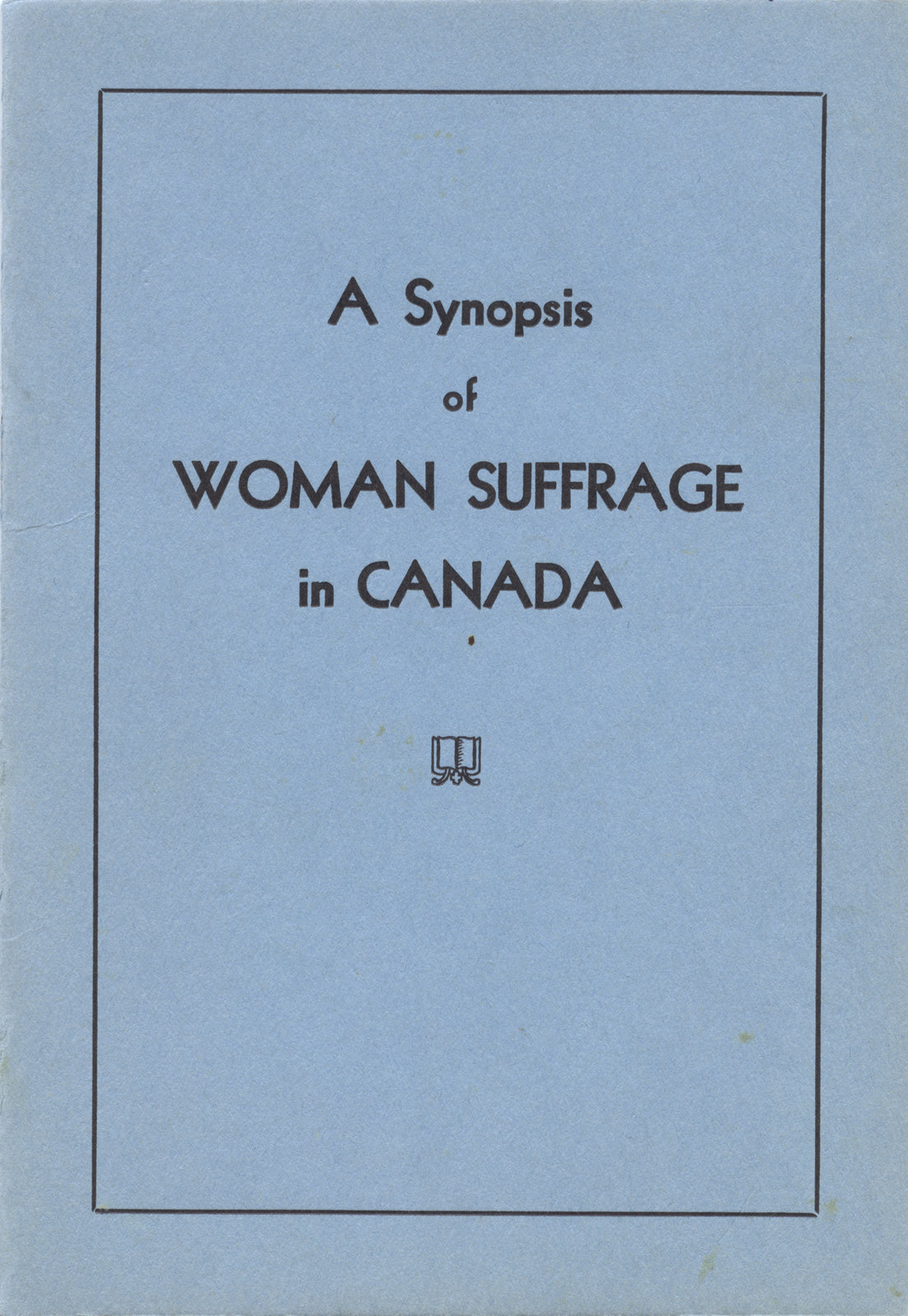
Courtesy the Wilfrid Laurier University Archives. [Learn More]
Ann Augusta Stowe-Gullen (1857-1943), better known as Augusta, was a medical doctor, a lecturer, and a suffragette. There is less known about Augusta's childhood, and no biography of her, but we assume she decided to follow in her mother's footsteps in many things.
Stowe-Gullen was educated at the Toronto School of Medicine, and, after much fighting, received her MD from the Faculty of Medicine at Victoria University. She was the first woman to graduate from a Canadian medical school in 1883. During her schooling she met John Gullen, one of the founders of Toronto Western Hospital; they were married around the time she graduated.
Augusta was a founding member of Women's College Hospital in Toronto (later the Ontario Medical College for Women), which was created in 1883 due to her passionate petitioning of several doctors and medical administrators. Immediately after graduating she was appointed Demonstrator in Anatomy at the Women's College Hospital in Toronto. In 1890 she was appointed Lecturer on Diseases of Children, and subsequently Professor of Diseases of Children.
She also served among the original staff members of Toronto Western Hospital; Stowe-Gullen was the first woman appointed to the TWH medical staff. She helped to organize, and later served as President of the TWH Women's Board (later the Women's Auxiliary).
Stowe-Gullen was a member of the Ontario College of Physicians and Surgeons, the Ontario Social Service Council, the Senate of the University of Toronto, the Toronto Board of Education, the University Women's Club, the Women's Art Association, the Women's Board at Toronto Western Hospital, and the Women's Canadian Club. She was also active in the temperance movement to abolish access to alcohol in Canada.
From 1893 to 1907, she was a member of the Toronto Women's Suffrage Club founded by her mother Emily Stowe, and, when the Club evolved into the Canadian Suffrage Association in 1907, Stowe-Gullen was elected honourary President. She served as the first woman member of the Toronto Public School Board, starting in 1892, and in 1910 was appointed to the Senate of the University of Toronto where she represented women in the medical profession until 1924.
She was among the founders of the National Council of Women in 1893, President of the Canadian Suffrage Association, Vice-President of the National Council of Women, and she succeeded her mother as President of the Dominion Women's Enfranchisement Association in 1903. In 1935 she was awarded the Order of the British Empire.
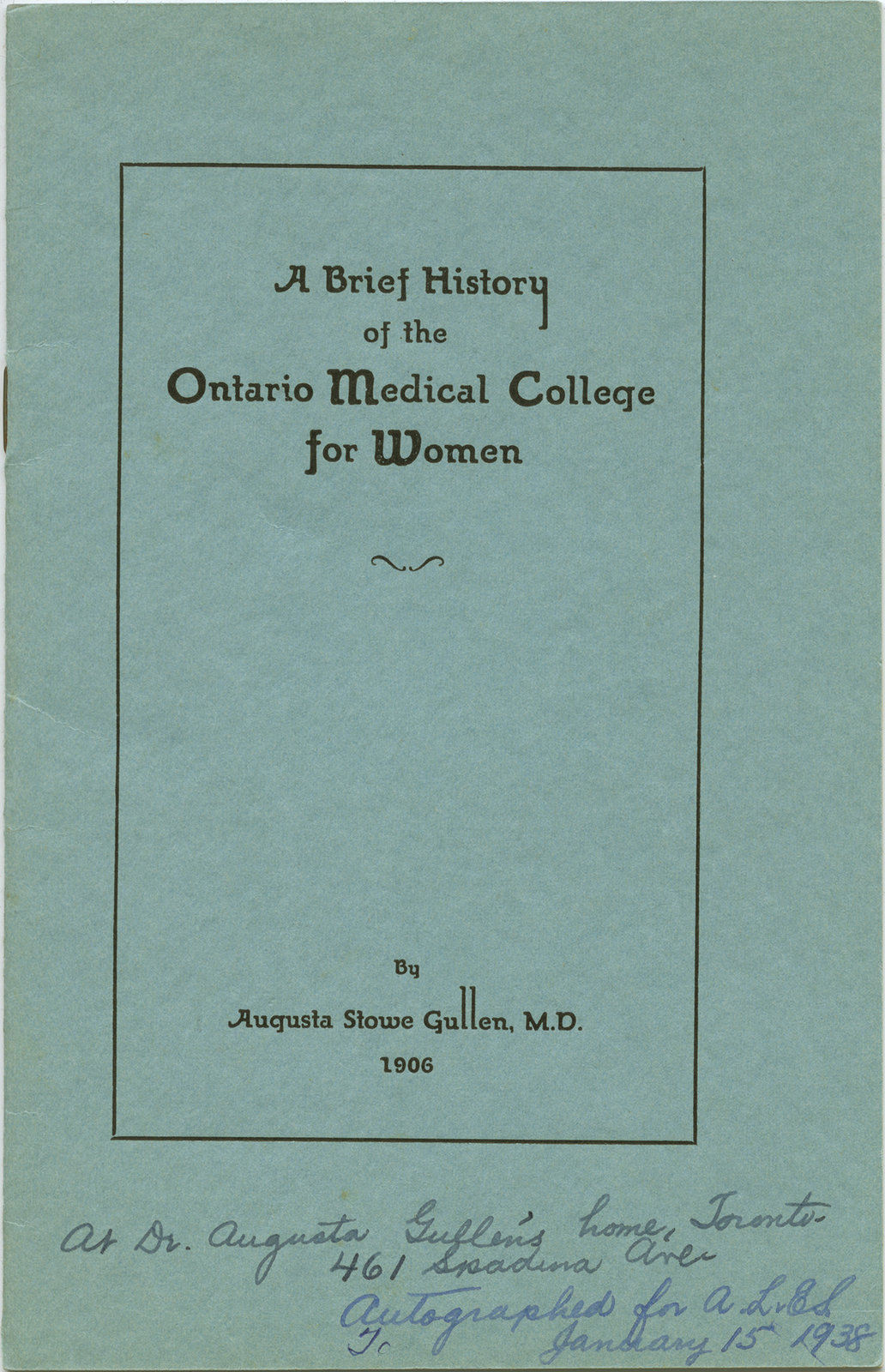
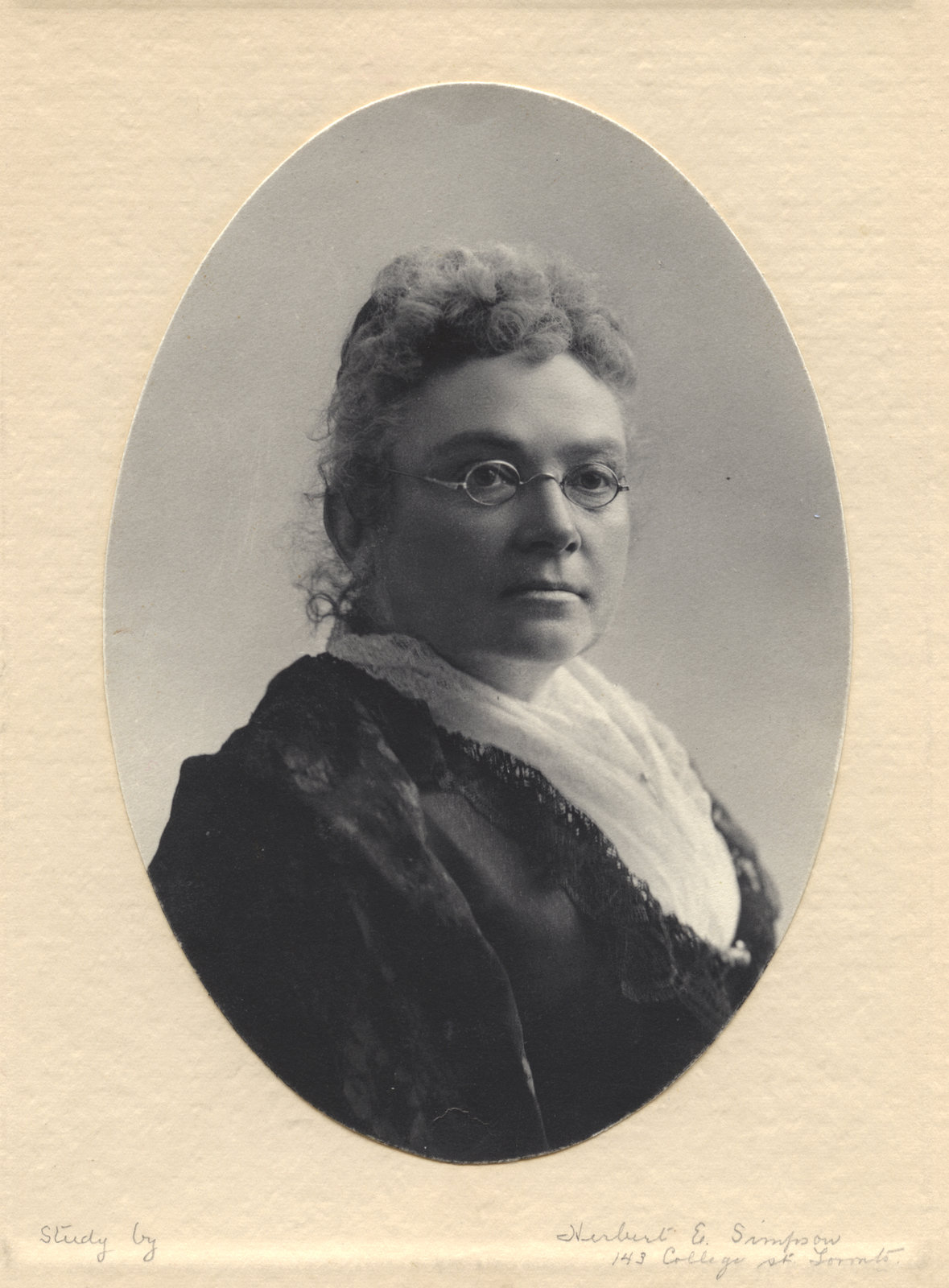
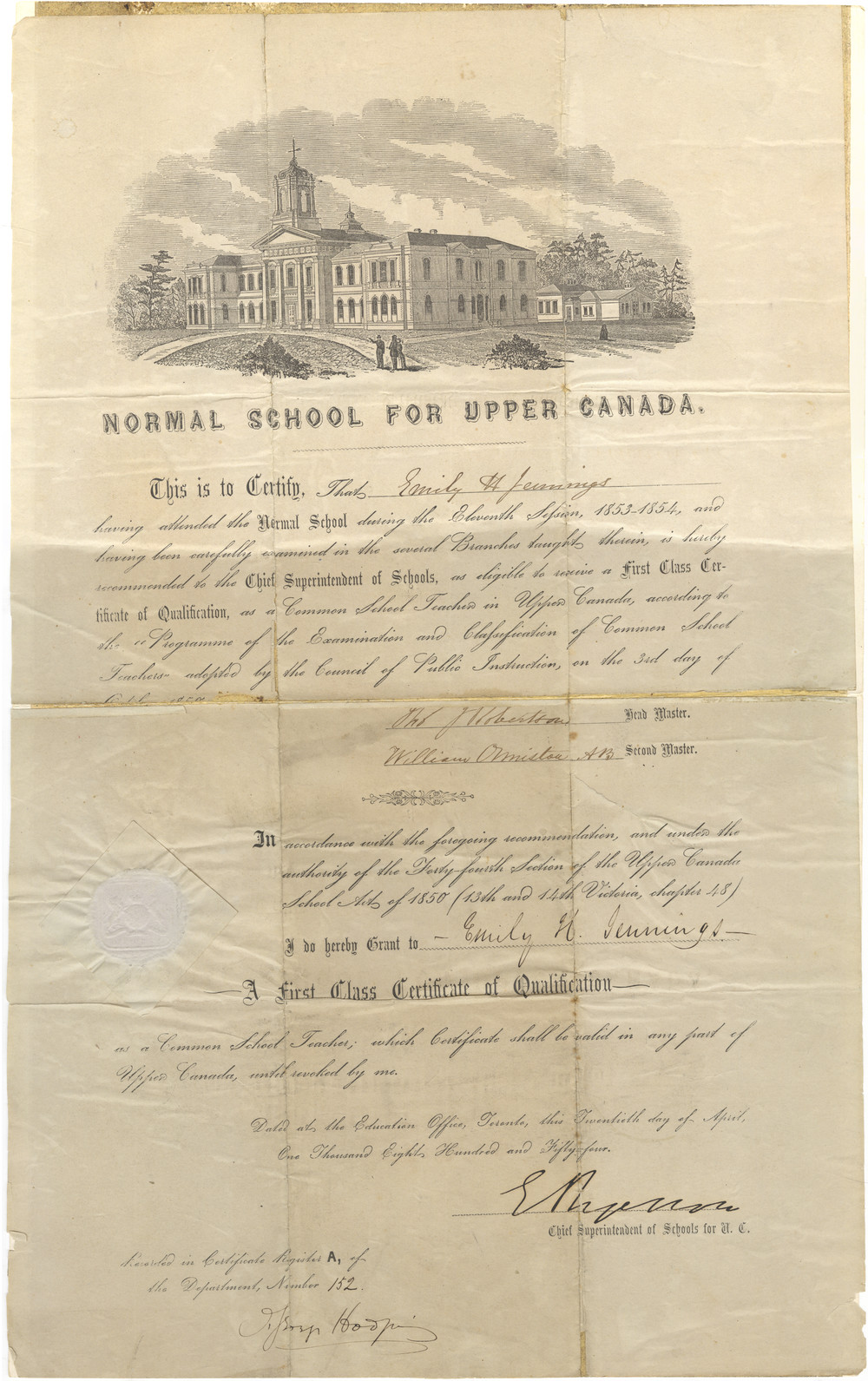
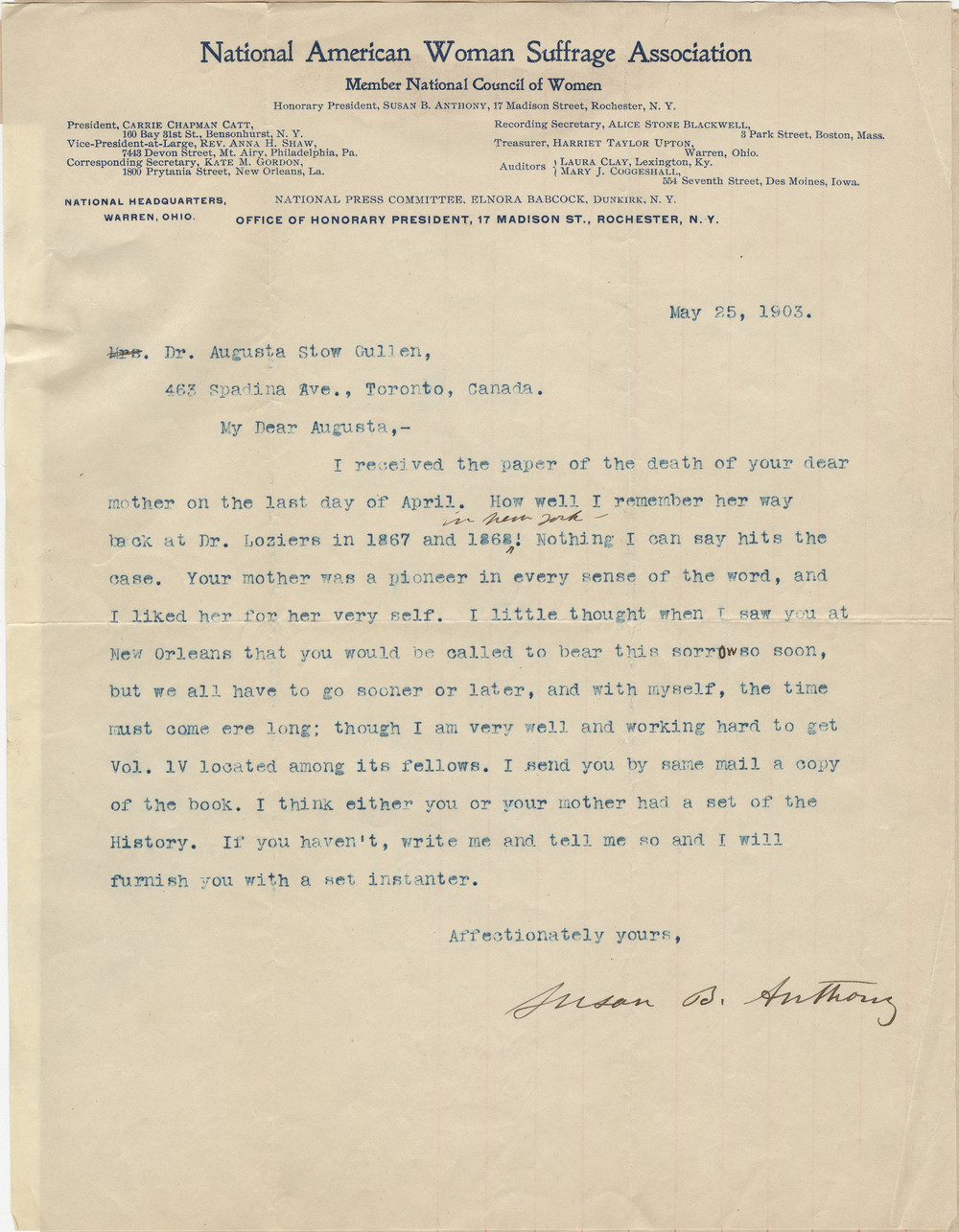
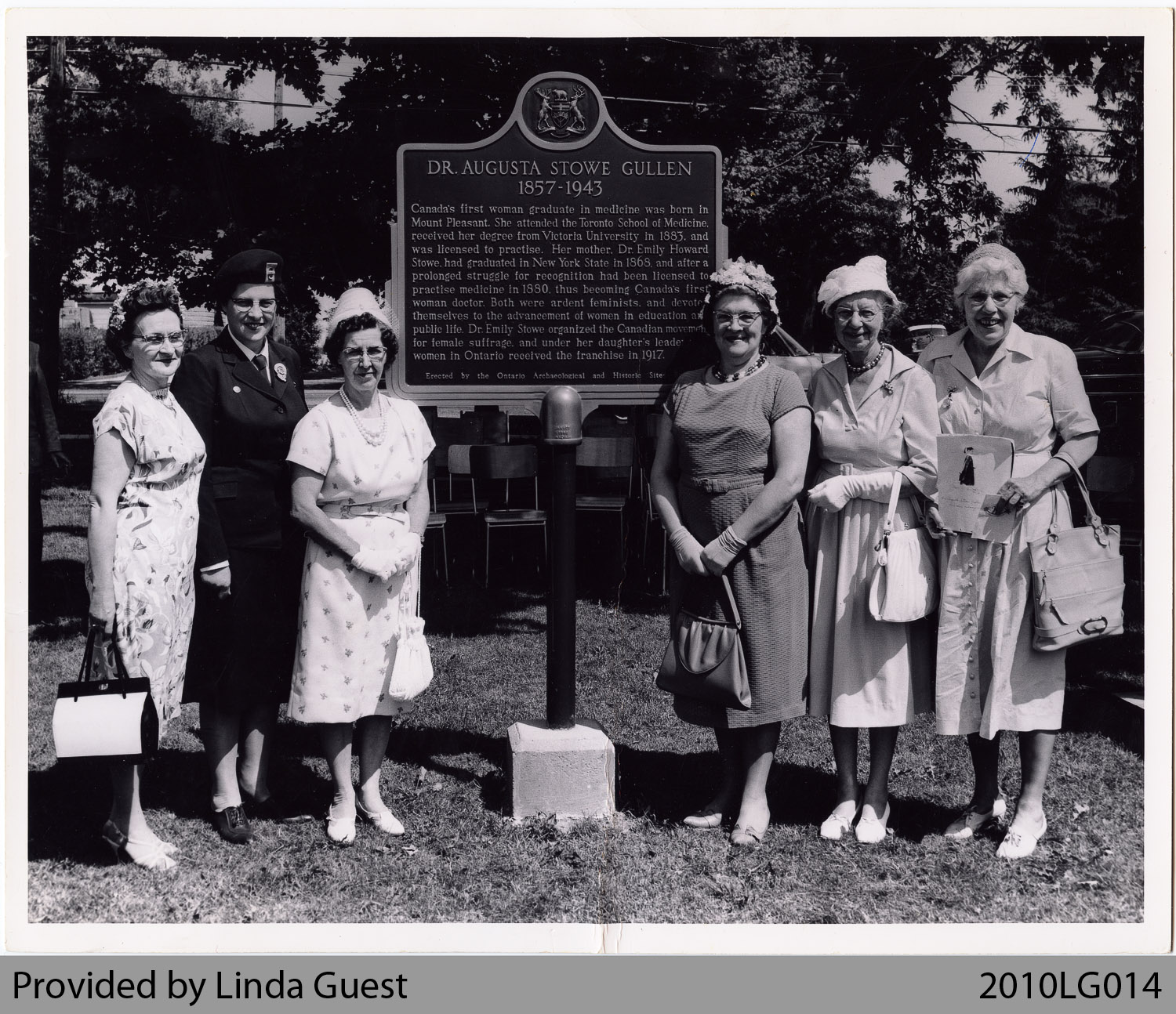
The plaque reads:
DR. AUGUSTA STOWE GULLEN
1857-1943
Canada's first woman graduate in medicine was born in Mount Pleasant. She attended the Toronto School of Medicine, received her degree from Victoria University in 1883, and was licensed to practise. Her mother, Dr. Emily Howard Stowe, had graduated in New York State in 1868, and after a prolonged struggle for recognition had been licensed to practise medicine in 1880, thus becoming Canada's first woman doctor. Both were ardent feminists, and devoted themselves to the advancement of women in education and public life. Dr. Emily Stowe organized the Canadian movement for female suffrage, and under her daughter's leadership women in Ontario received the franchise in 1917.



